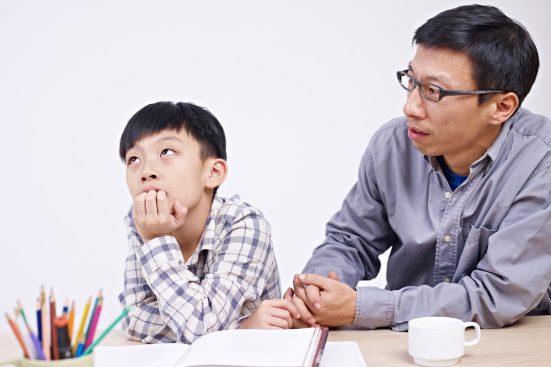Every now and then we read/hear news of attempted child abductions. It’s important of course to keep a sense of perspective about these. There are many, many thousands of Australian children waiting at bus stops, at after school pick up points and walking short distances home by themselves every single day who have never been approached by a stranger – it is statistically extremely unlikely that our children will be targeted. The danger of a child being hurt in a car accident is hundreds of times higher than being abducted by a stranger.
However, it still makes sense to have a calm, relaxed conversation with our children about what to do to stay safe from potential abductors and if a stranger approaches them. Here are some ideas which can help us have these conversations effectively without inducing panic in kids.
1. Start the conversation by asking them questions –
What would you do if someone you didn’t know asked you to get in their car?
What if they said “I need help” or if they said “your parents have been in an accident and I have to take you home?”
What if they tried to grab you?
How do you make sure you are safe when walking home/waiting at the bus stop/pick up point?
By asking these kinds of questions first, you will have a better idea about what you might need to say to your children. My children had some ideas about trying karate moves on them, which I was glad I knew about and could discourage! Starting with questions also means they are more interested and might not switch off from what they see as “another parental lecture”
2. Go over your house/family rules for staying safe
Everyone has different rules. Come up with some which apply to your family and situation. Try to keep them few and simple. There should be few enough rules so the child is able to repeat them back to you and not be overwhelmed. Here are a few suggestions which might work for your family.
-
If we are not there to pick you up from school, then go to the school front office. If something has happened and we have to get someone else to pick you up – they will always pick you up inside the front office of the school. No-one we know will ever try to stop you from going to the office.
-
While waiting at bus-stop, pick up points or walking home – stay as far away from the side of the road as possible. If someone tries to talk to you from a car or at a bus stop, walk away without speaking to them. It’s okay to not answer people you don’t know if you are by yourself.
-
If a stranger asks you for help, and you are by yourself – say no. Adults should ask other adults for help, not kids. If a stranger tells you they have something for you – say no. Never take anything from adults you don’t know. There are NO GOOD REASONS to ever go with an adult you don’t know by yourself.
-
If you are ever in a situation in which you feel scared with someone, run away as fast as you can. If you can’t run, make as much noise as possible. Scream, yell, kick and scream “help”.
-
Remember you can’t tell from the outside who is safe and who is not safe. Even people who look nice and friendly might do bad things. If you don’t know them, you don’t go with them.
3. Stay calm.
Have this conversation in a very matter of fact tone. Usually we should take about 5-10 minutes at most over it. Don’t let children see you panicking about this issue. If they seem anxious, or there is “school yard” chatter about stranger-danger, then remind children:
-
It is extremely unlikely that anyone will try to abduct you. These ideas we have talked about are for “just in case” but it is most likely that this will never happen.
-
There are a few people in the world who do bad things. Not very many people. We don’t know who these people are by looking at them. But there are many more people who are kind, do good things and help people.
If they keep bringing it up, or seem overly anxious, reassure them briefly and then distract them and change the topic. Don’t have extended conversations about this repeatedly.
4. Don’t give lots of details about kidnapping or abductions
Some children are inquisitive and some children are prone to getting worried. If young children ask, “but why do bad people take children” or “what would happen to those kids with those people” – then just say something like “that’s adult stuff, you don’t need to know yet” or simply change the topic. Older children and teens might want and be entitled to more information; “A few adults in the world have a rare sickness that makes them want to hurt others, including children. There is something wrong with their brains and they don’t know they need help. Sadly, some children are very badly hurt or killed by these people”. Only give this information to older children, and only if they ask.
Finally, remember that statistically more children are abused and killed by people they know – relatives, neighbours, friends of friends. As well as talking to children about potential stranger abduction, we should be also talking to children about staying safe in general. On other occasions (not in the same conversation otherwise it can be too much to remember and take in), talk to children about private parts, feeling safe, not having any secrets from parents, and how to talk about feeling scared, guilty and worried. Part of our job as parents is to have regular (1-3 a year as a rough guide) calm conversations with children about these issues.



